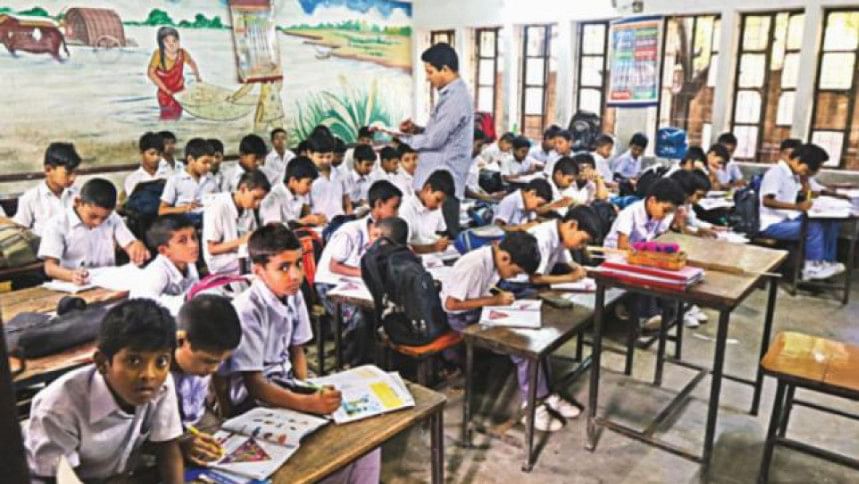A whole generation at risk

It is disheartening to read the latest Unicef report that says that only 34 percent of third graders in primary schools can read texts from their books properly and that only 18 percent of them have foundational numerical competency. This is the general picture of primary education in the country and it is even worse for children coming from economically disadvantaged backgrounds.
A third grader is, on average, almost 10-years-old, by which time s/he should be able to acquire reading, writing and numerical skills. It is alarming that 66 percent of them lack these basic skills which, in large part, is due to disruption in their education for a long period of time because of the Covid-19 pandemic. The forced internment had an adverse effect on them and, as a result, most of them remained detached from their textbooks. The health concerns and economic uncertainties of the parents somehow filtered down to the growing children, and so education was rarely given priority during the crisis period for an overwhelming majority of families, especially in the rural areas.
It is worrisome that globally more than 635 million students have been affected by full or partial school closures because of Covid-19 pandemic in the last two years. When we look at the situation at home, we see that school closures—one of the lengthiest in the world—in Bangladesh, from March 2020 to September 2021, and again in February 2022, disrupted education of around 37 million children.
Unicef highlights that even before the pandemic, children in Bangladesh faced various types of hurdles in attaining foundational skills. The pandemic has worsened the situation beyond the worst expectations. Children in the country need full access to flexible and remedial learning to help make up for the time lost. It has been rightly said by experts that just reopening schools is not enough. Students need intensive support to recover lost time and education. Schools must also endeavor to focus on children's mental and physical health, social development and nutrition.
There is no denying that children must enjoy learning and the school authorities will have to ensure creating a congenial environment in school. At the same time, greater attention should be given to those falling behind—otherwise it would spell disaster for a whole generation of the country. If only 34 percent of third graders can read today, schools must make sure 100 percent of them can tomorrow.

 For all latest news, follow The Daily Star's Google News channel.
For all latest news, follow The Daily Star's Google News channel. 



Comments